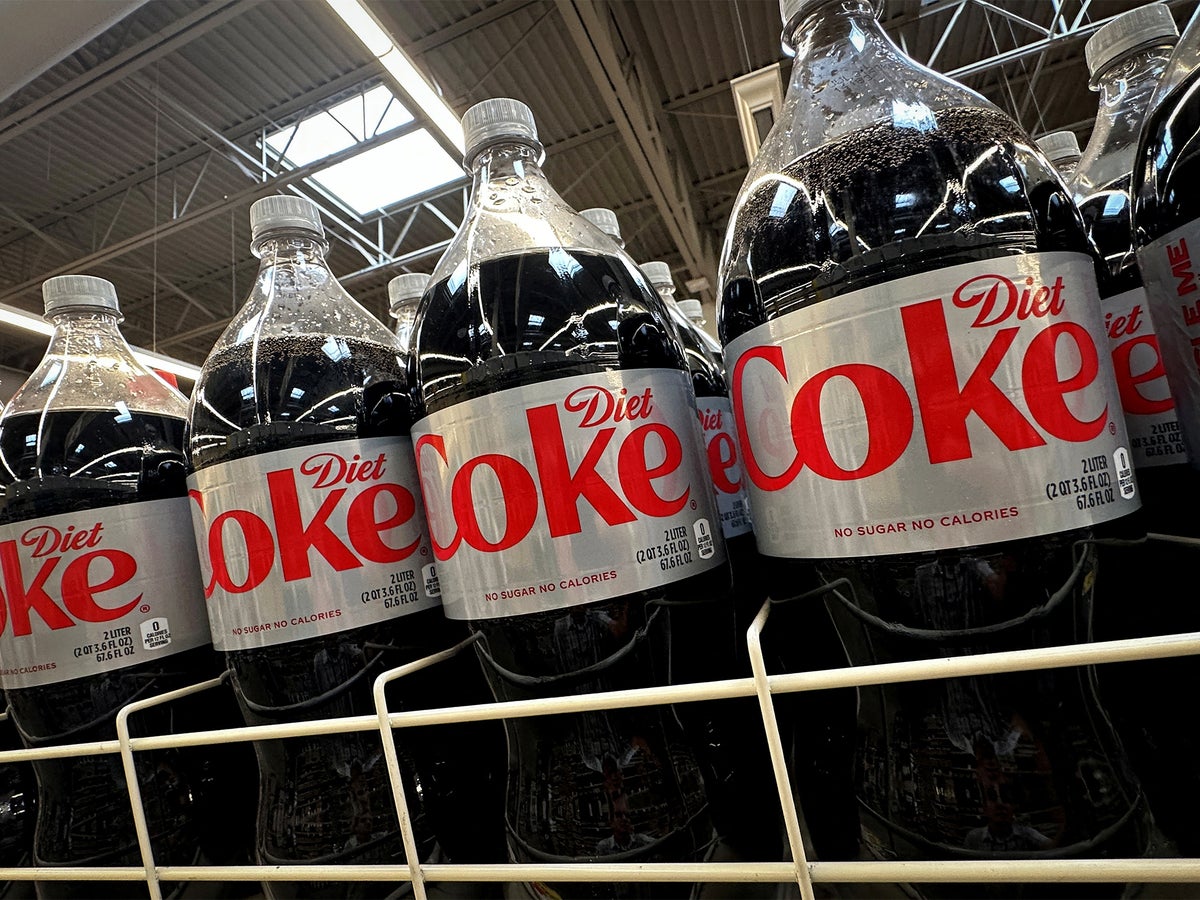
A common sweetener used in products such as Diet Coke is set to be declared as potentially cancerous next month in a move likely to spark a major row between industry and regulators.
The International Agency for Research on Cancer (IARC), the World Health Organisation’s cancer research unit, is for the first time poised to label aspartame as a potential carcinogen from July, two sources familiar with the process told Reuters.
Aspartame, a white, odourless power, is a low-calorie artificial sweetener, which is approximately 200 times sweeter than sugar and is classified as an E number, a term given to additives in food in drink products.
The IARC ruling, finalised earlier this month after a meeting of the group’s external experts, is intended to assess whether something is a potential hazard or not, based on all the published evidence.
It does not take into account how much of a product a person can safely consume. This advice for individuals comes from a separate WHO expert committee on food additives, known as JECFA (the Joint WHO and Food and Agriculture Organisation’s Expert Committee on Food Additives), alongside determinations from national regulators.
However, similar IARC rulings in the past for different substances have raised concerns among consumers about their use, led to lawsuits, and pressured manufacturers to recreate recipes and swap for alternatives. That has led to criticism that the IARC’s assessments can be confusing to the public.
JECFA, the WHO committee on additives, is also reviewing aspartame use this year. Its meeting began at the end of June and it is due to announce its findings on the same day that the IARC makes public its decision – on 14 July.
Since 1981, JECFA has said aspartame is safe to consume within accepted daily limits. For example, an adult weighing 60kg (132 pounds) would have to drink between 12 and 36 cans of diet soda – depending on the amount of aspartame in the beverage – every day to be at risk. Its view has been widely shared by national regulators, including in the United States and Europe.
An IARC spokesperson said both the IARC and JECFA committees’ findings were confidential until July, but added they were “complementary”, with IARC’s conclusion representing “the first fundamental step to understand carcinogenicity”.
The additives committee “conducts risk assessment, which determines the probability of a specific type of harm (e.g., cancer) to occur under certain conditions and levels of exposure”.
However, industry and regulators fear that holding both processes at around the same time could be confusing, according to letters from US and Japanese regulators seen by Reuters.
Since 1981, JECFA has said aspartame is safe to consume within accepted daily limits. For example, an adult weighing 60 kg (132 pounds) would have to drink between 12 and 36 cans of diet soda – depending on the amount of aspartame in the beverage – every day to be at risk. Its view has been widely shared by national regulators, including in the United States and Europe.
An IARC spokesperson said both the IARC and JECFA committees’ findings were confidential until July, but added they were “complementary”, with IARC’s conclusion representing “the first fundamental step to understand carcinogenicity”. The additives committee "conducts risk assessment, which determines the probability of a specific type of harm (e.g., cancer) to occur under certain conditions and levels of exposure.”
However, industry and regulators fear that holding both processes at around the same time could be confusing, according to letters from US and Japanese regulators seen by Reuters.
The International Sweeteners Association, whose members include Mars Wrigley, Coca-Cola and Pepsico, reacted with anger to the news, claiming the pending IARC decision was based on “widely discredited research”.
The ISA said it had “serious concerns with the IARC review, which may mislead consumers”.
“IARC is not a food safety body and their review of aspartame is not scientifically comprehensive and is based heavily on widely discredited research,” Frances Hunt-Wood, secretary general of the ISA, said.
Aspartame has been studied for years and a French study published in March last year said it could increase the risk of cancer in people who consume it.
Experts from the French National Institute for Health and Medical Research, and Sorbonne Paris Nord University, analysed data and suggested a potential increased risk for breast cancer and obesity-related cancers.
Previous large-scale studies on humans found no such association and UK experts said no causal link had been found.
A separate study, published in December last year, found that the sweetener, found in nearly 5,000 diet foods and drinks, was linked to anxiety in mice.
The study, published in the journal PNAS, noted that mice that consumed aspartame experienced anxiety, and the effects extended up to two generations from the male rodents exposed to the sweetener.
Coca-Cola has been approached for comment.







